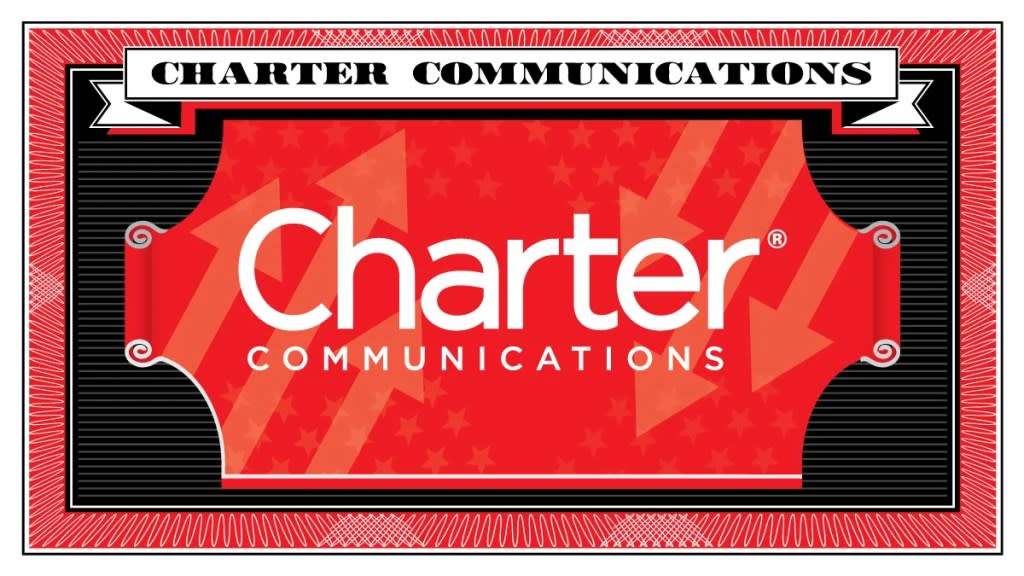Charter Loses 320,000 Residential Video Customers in Q3, Including 100,000 From Disney Carriage Dispute

You are reading an exclusive WrapPRO article for free. Want to level up your entertainment career? Click here to subscribe.
Shares of Charter Communications plunged as much as 9% in pre-market trading on Friday after the pay-TV giant’s total revenue for the third quarter of 2023 grew 0.6% to $13.58 billion, falling short of Wall Street expectations.
However, the company beat earnings estimates for the quarter with diluted earnings of $8.25 per share, or net income of $1.3 billion. Analysts surveyed by Zacks Investment Research were expecting earnings of $7.73 per share on revenue of $13.64 billion.
The company also reported a loss of 320,000 residential cable TV subscribers, including about 100,000 that were directly related to a carriage dispute with Disney in September that saw its linear networks dropped from Spectrum for 11 days.
While acknowledging that the overall impact of the dispute to Charter’s customer relationships was less than expected, chief financial officer Jessica Fischer noted that the company’s billing and retention call centers were not fully back to normal until early October, resulting in a “lingering customer net add impact early in the fourth quarter.”
Charter reported a total of 32.2 million residential and small and medium business customer relationships, excluding mobile-only relationships. Total residential and small and medium business internet customers increased by 63,000 to 30.6 million and total residential and small and medium business mobile lines increased by 594,000 to 7.2 million mobile lines.
The company shed a total of 327,000 pay-TV subscribers during the quarter, including 320,000 residential video customers and 7,000 small and medium business customers. Residential video customers decreased by 320,000 in the third quarter of 2023, compared to a decline of 211,000 during the same period a year ago, partly driven by video disconnects related to the temporary loss of Disney programming in early September.
As of the end of the quarter, Charter reported a total of 14.37 million video customers, including 13.75 million residential customers and 628 million small and medium business customers. In October, Charter began deploying Xumo Stream Boxes to video customers, which combines live TV with direct-to-consumer apps.
Elsewhere, the company added 63,000 Internet customers for a total of 30.6 million. Residential Internet customers increased by 57,000 during the quarter to 28.6 million, including some impact from the temporary loss of Disney programming in early September, compared to an increase of 61,000 during the third quarter of 2022. It also added 594,000 mobile lines for a total of 7.2 million, including 6.98 million residential lines and 233,000 small and medium business lines. However, Charter lost 286,000 voice customers during the quarter for a total of 8.26 million, including 6.96 million residential customers and 1.3 million small and medium business customers.
Residential revenue fell 0.3% year over year to $10.7 billion. Year-over-year revenue growth was negatively impacted by $68 million of total customer credits related to the temporary loss of Disney programming in September. Monthly residential revenue per residential customer totaled $119.28, down 0.6% compared to the prior year period
Video revenue slid 8.6% year over year to $5.8 billion, driven by a higher mix of lower priced video packages within Charter’s video customer base, a decline in video customers during the last year and the aforementioned $63 million of residential customer credits, partly offset by promotional rate step-ups and video rate adjustments that pass through programmer rate increases.
Mobile service revenue was a notable bright spot, growing 33% year over year to $581 million, driven by mobile line growth and higher bundled revenue allocation. Internet revenue climbed 3.7% year-over-year to $5.8 billion, driven by growth in Internet customers during the last year, promotional rate step-ups and rate adjustments, partly offset by lower bundled revenue allocation. Voice revenue dropped 3% year over year to $379 million, driven by a decline in wireline voice customers over the last twelve months, partly offset by voice rate adjustments.
Elsewhere, commercial revenue grew 0.8% year over year to $1.8 billion, while advertising sales revenue tumbled 20.3% year over year to $384 million, driven by lower political revenue.
Charter and Disney have since resolved their carriage dispute, with a new agreement that offers ad-supported Disney+ Basic to Spectrum TV Select package customers in the coming months. Additionally, ESPN+ will be provided to Spectrum TV Select Plus subscribers as will the sports network’s flagship direct-to-consumer service when it launches.
Meanwhile, Charter will maintain flexibility to offer a range of video packages at varying price points based upon customer viewing preferences and will use its distribution capabilities to offer Disney’s streaming apps to its customers, including its broadband-only subscribers.
Charter president and CEO Chris Winfrey said the new agreement showcased that “a new hybrid distribution model is good for consumers” and ““better aligns video content and DTC apps.”
“We created a glide path to bridge from linear video to new growth,” he added.
While Spectrum will continue to carry ABC Owned Television Stations, Disney Channel, FX, the Nat Geo Channel and the full suite of ESPN networks, Baby TV, Disney Junior, Disney XD, Freeform, FXM, FXX, Nat Geo Wild and Nat Geo Mundo will no longer be included in Spectrum TV video packages.
The post Charter Loses 320,000 Residential Video Customers in Q3, Including 100,000 From Disney Carriage Dispute appeared first on TheWrap.


